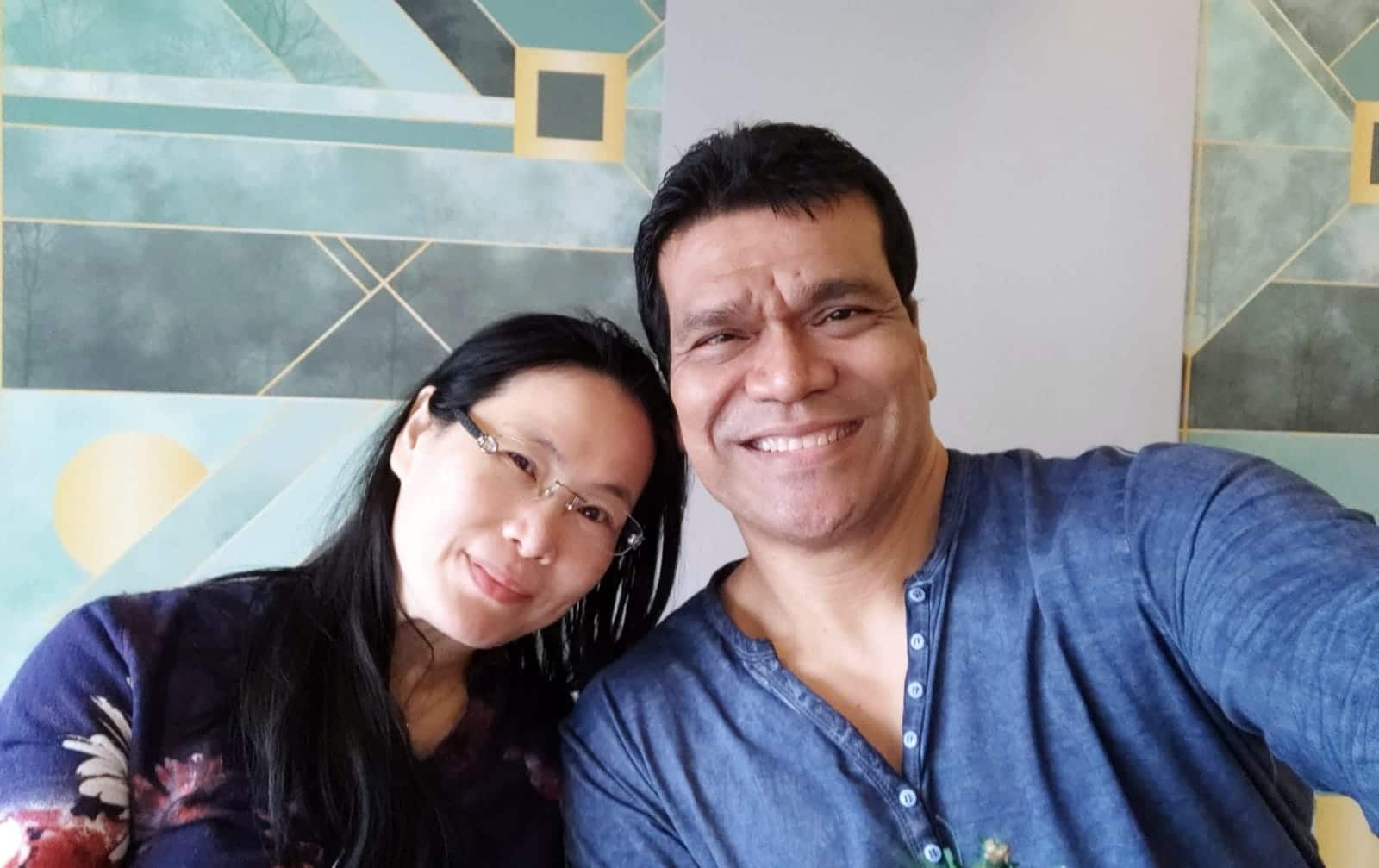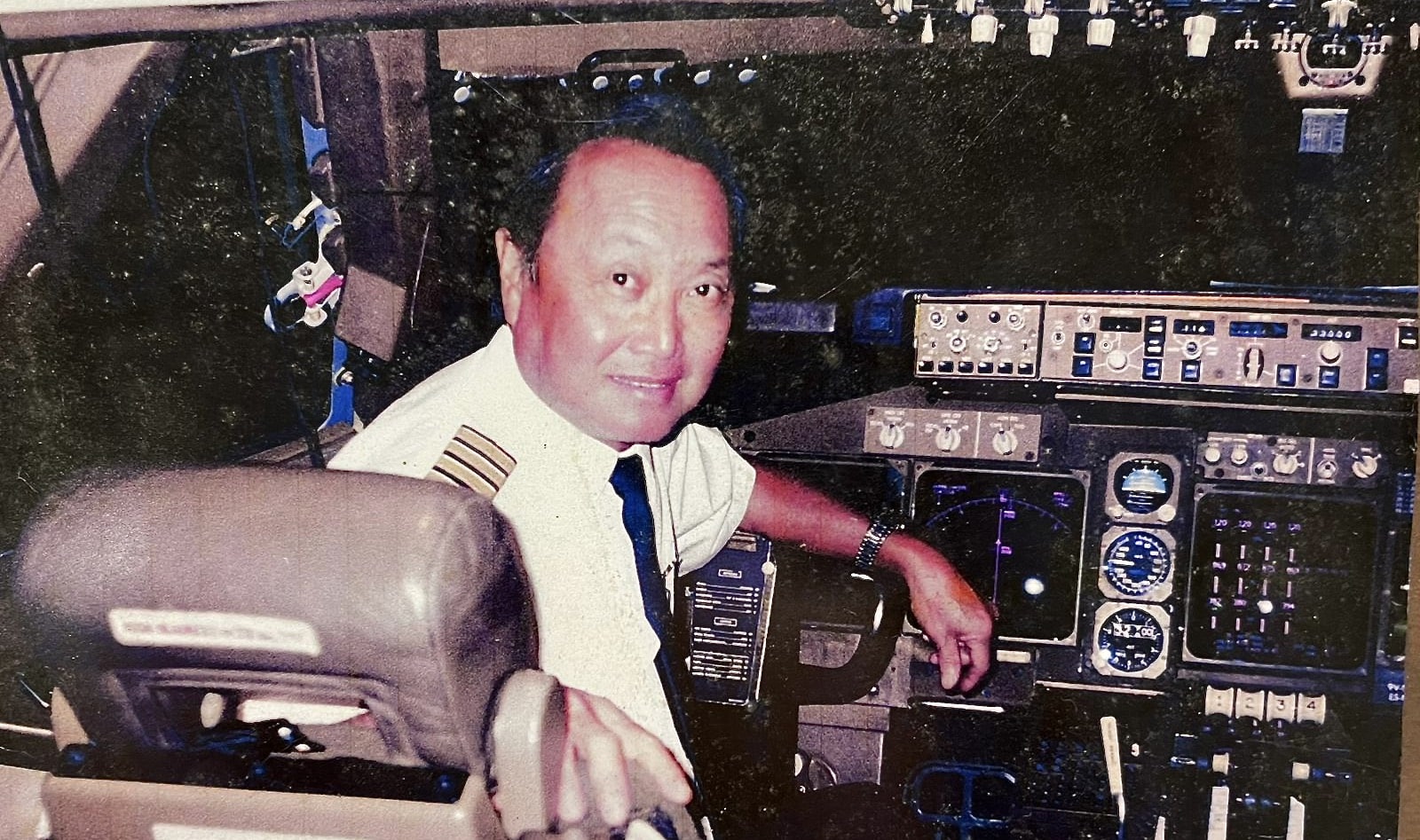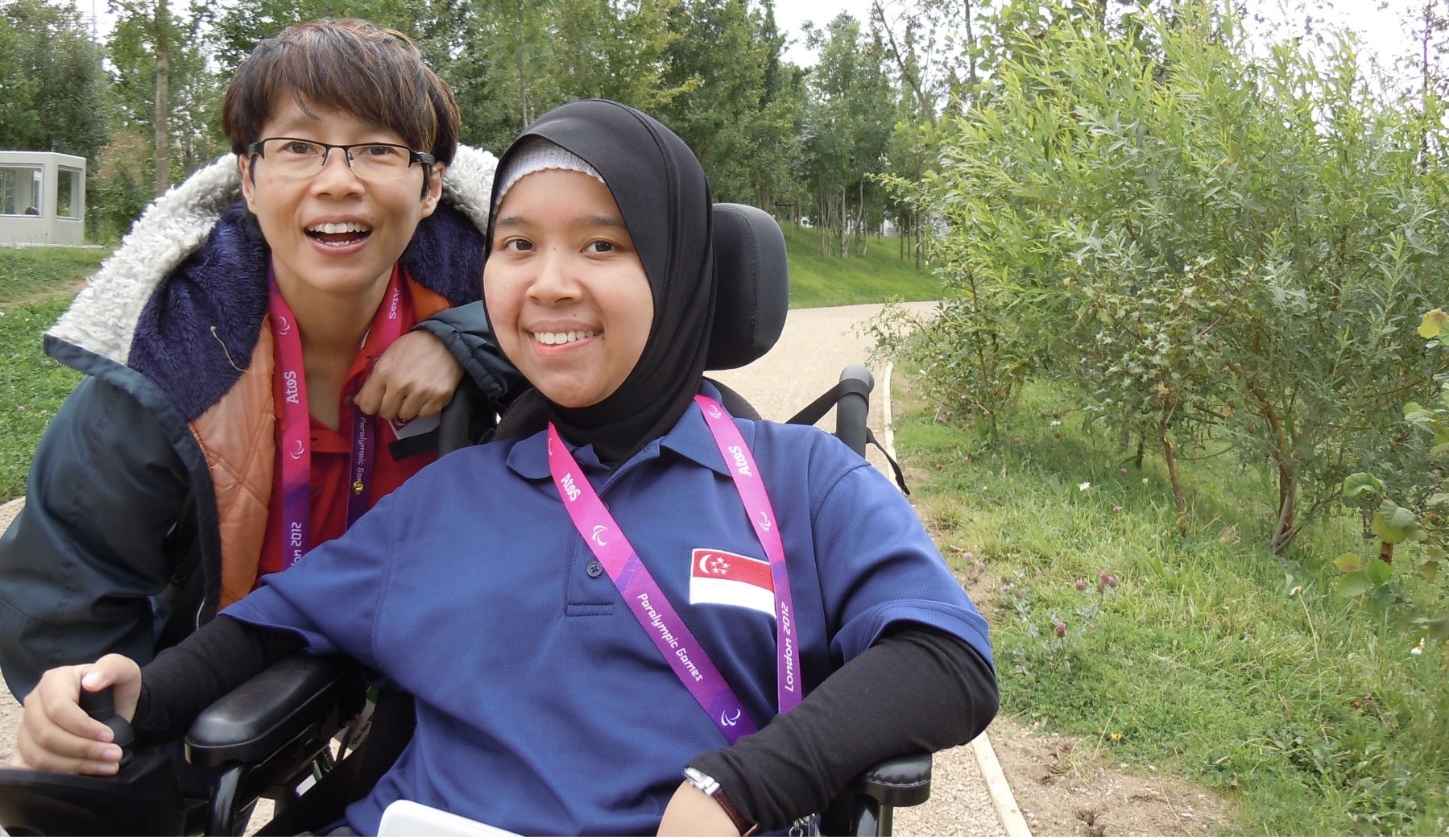“Even the shyest person can influence 10,000 people in their life”: Alpha pioneer Nicky Gumbel
by Gemma Koh // April 20, 2022, 9:49 am
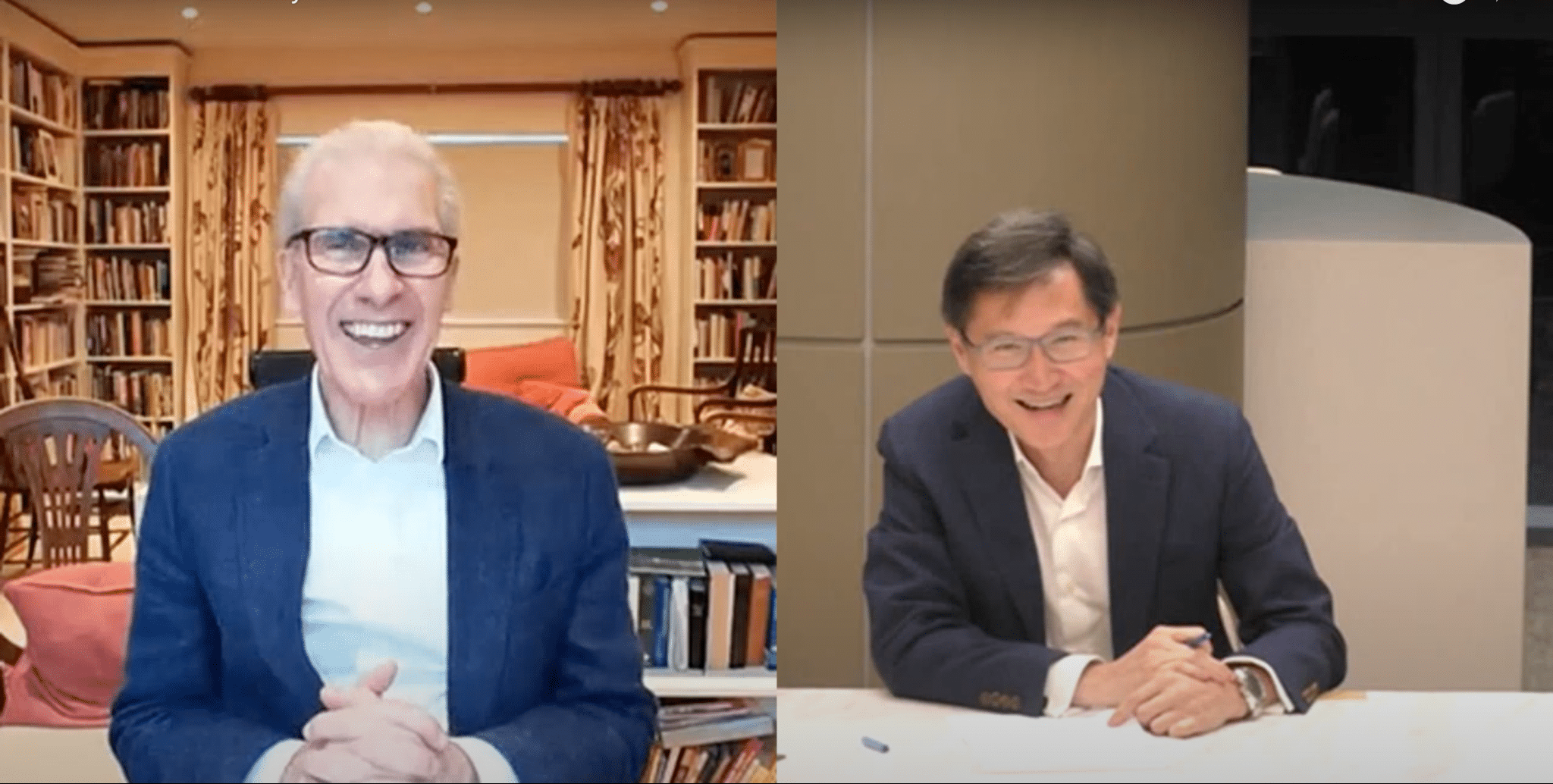
With Jesus as our leader, "in one sense, no one is a leader, in another sense, everyone is a leader," says Nicky Gumbel (left), who leads Alpha globally. In March, he shared his journey and thoughts on leadership and calling with staff of Far East Organization in a webinar moderated by Raphael Saw (right).
Nicky Gumbel was once an “argumentative atheist” who thought that Christians “were very suspicious people and I tended to avoid them”.
Today, the 66-year-old has been described as arguably the most influential Christian in Britain. His friendly face and self-deprecating humour is synonymous with the film series used by communities that run the Alpha course.
God would use Nicky’s early view of Christians to inform the skewing the Alpha course towards people outside the Church.
In his first year at the University of Cambridge in 1974, Nicky discovered that two of his great friends had become Christians.
Worried about them, he decided to research all faiths.
“But that night, I could only find a Bible.
“As I read about Jesus, it was as if the person I was reading about in the New Testament emerged from the pages. I had an encounter with Him.
“I sort of knew it was true. But I didn’t want to become a Christian because I thought that life would be miserable.”
Little did Nicky foresee how the trajectory of his life would change:
How he would switch from reading economics to law after becoming a Christian.
How God would lead him to Holy Trinity Brompton (HTB) where he would start helming the Alpha course in 1990.
Nicky would later become Vicar at HTB, a role he is stepping down from in July 2022.
God would use Nicky’s early view of Christians to inform the skewing the Alpha course towards people outside the Church. Its loving, non-judgemental, no-pressure approach welcomes all to ask questions about the Christian faith. (Nicky and his wife Pippa are leading their 95th small group in a row.)
The statistics testify to its appeal: Close to 30 million people around the world have done Alpha. It is run in places like boardrooms, cafes, schools, prisons, homes and churches of all denominations in 169 countries and has been translated into 112 languages. The course originated in 1977 for the congregation at HTB, and started with just six people.
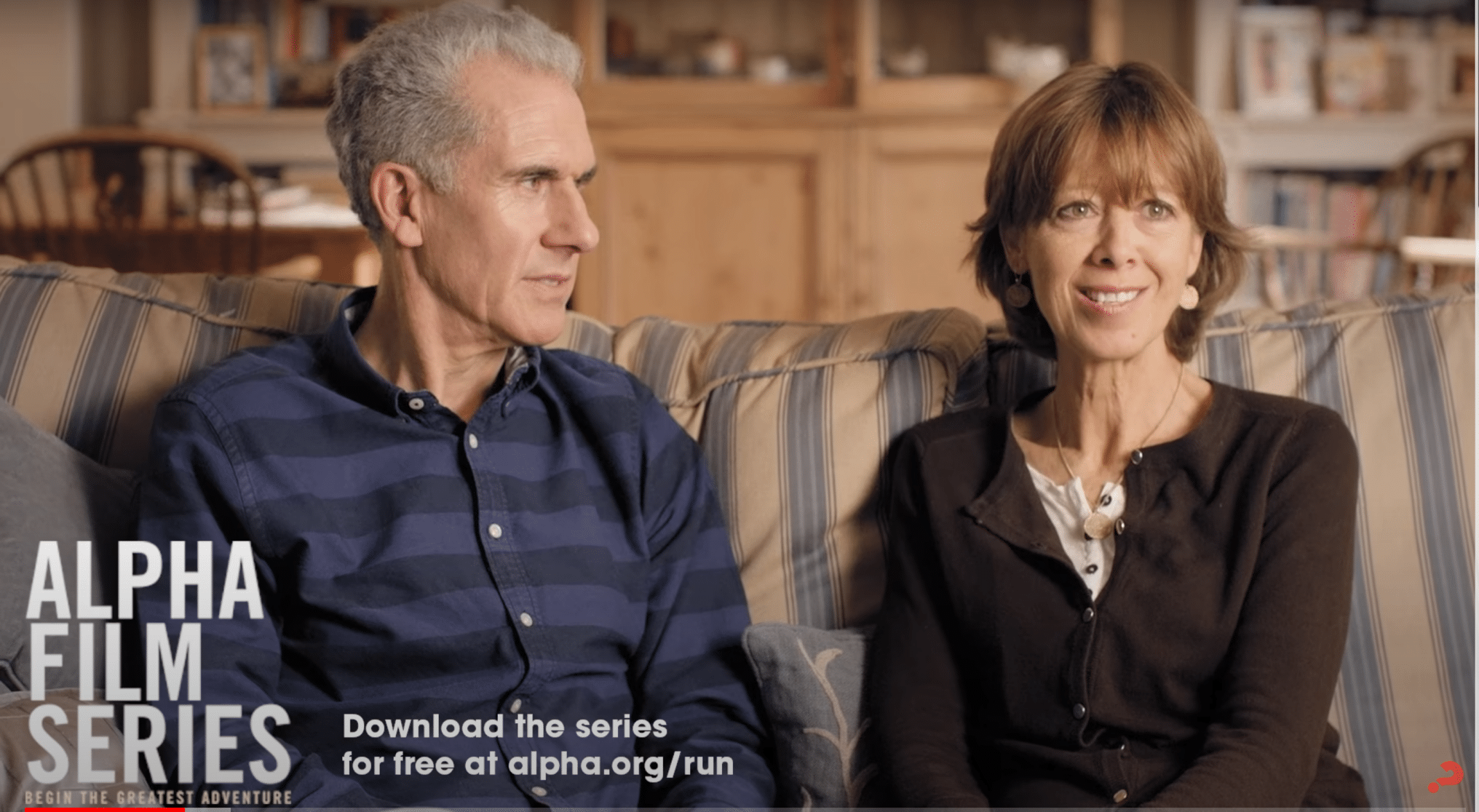
Nicky and wife Pippa share anecdotes from their courting days and married life in the Alpha episodes. Screenshot from YouTube.
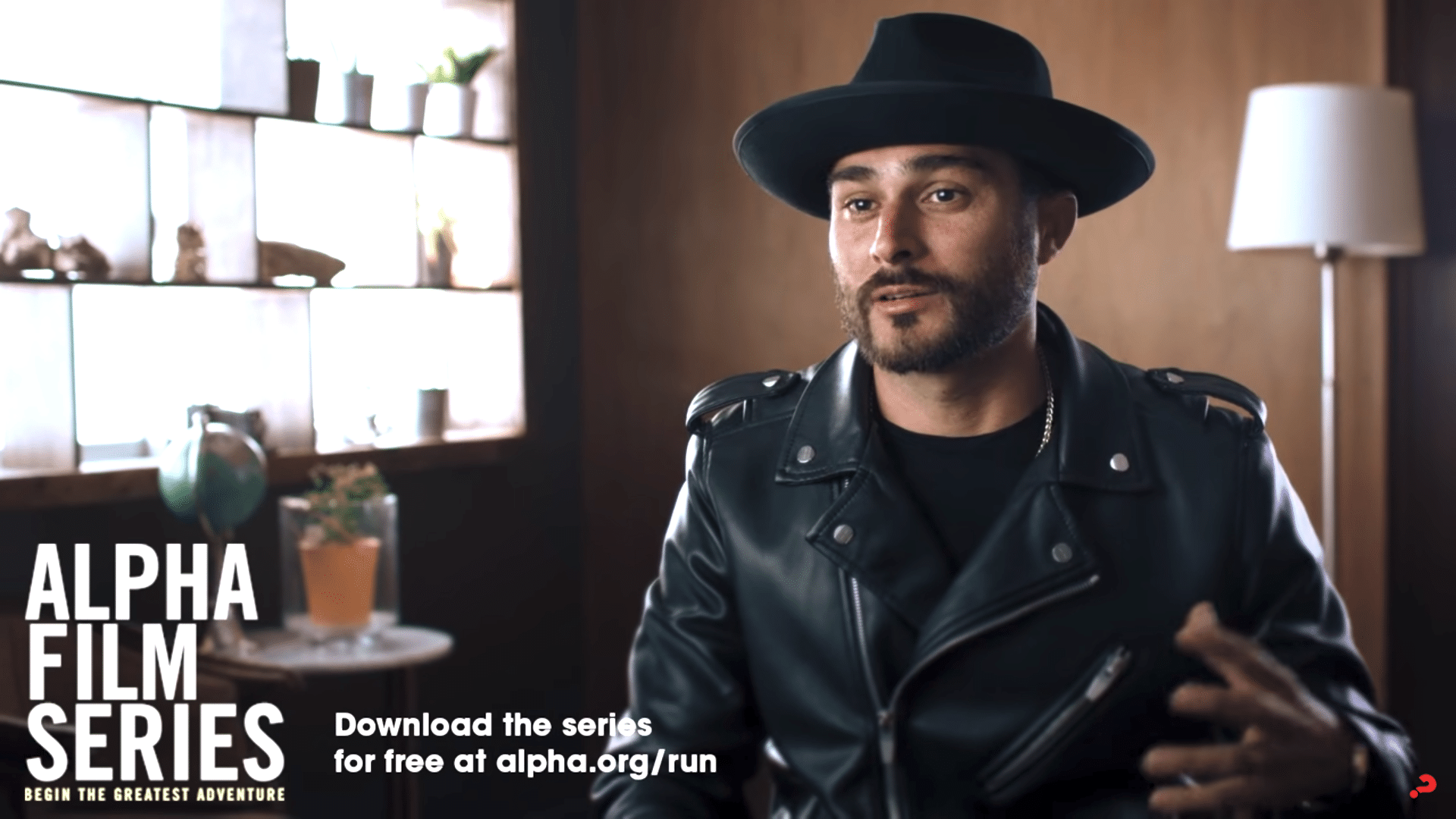
Alpha episodes feature testimonies from people from around the world – from those who had the trappings of worldly success to those like Emerson Nowotny (pictured), who grew up in an environment where drugs and gunshots were normal. Screenshot from Episode 4. A film series for youths is also available.
When the Covid-19 pandemic unfolded in 2020, Alpha went online as a pivoting strategy. But because of its effectiveness in some communities, Alpha Online evolved from a temporary solution into a more permanent option. According to Alpha’s 2020 annual review, more than 1.3 million people worldwide turned to Alpha that year – and many of them found faith and were filled with the Holy Spirit – often at their kitchen tables.
In March, Nicky, from his London home, shared his journey and thoughts on leadership with team members of Far East Organization in Singapore via a webinar. Salt&Light was invited to the session.
The conversation is part of their internal Coram Deo (Latin for “in the presence of God”) series in which staff have the opportunity to learn from Christian leaders across different disciplines.
The session was hosted by Raphael Saw, Chief Operating Officer of the Agape Business Group at Far East Organization, who also oversees its social enterprise arm.
Below are Nicky’s answers to a selection of questions posed by Raphael and attendees. (The Q&A has been edited for length.)
You practised as a barrister. And after a while, you decided that your calling is in telling people about Jesus Christ. How do we discern our calling?
God speaks to us in many different ways. I would say to anyone trying to work out what they should do with their life:
1. Read the Bible daily
That is probably the main way I hear God’s voice each day.
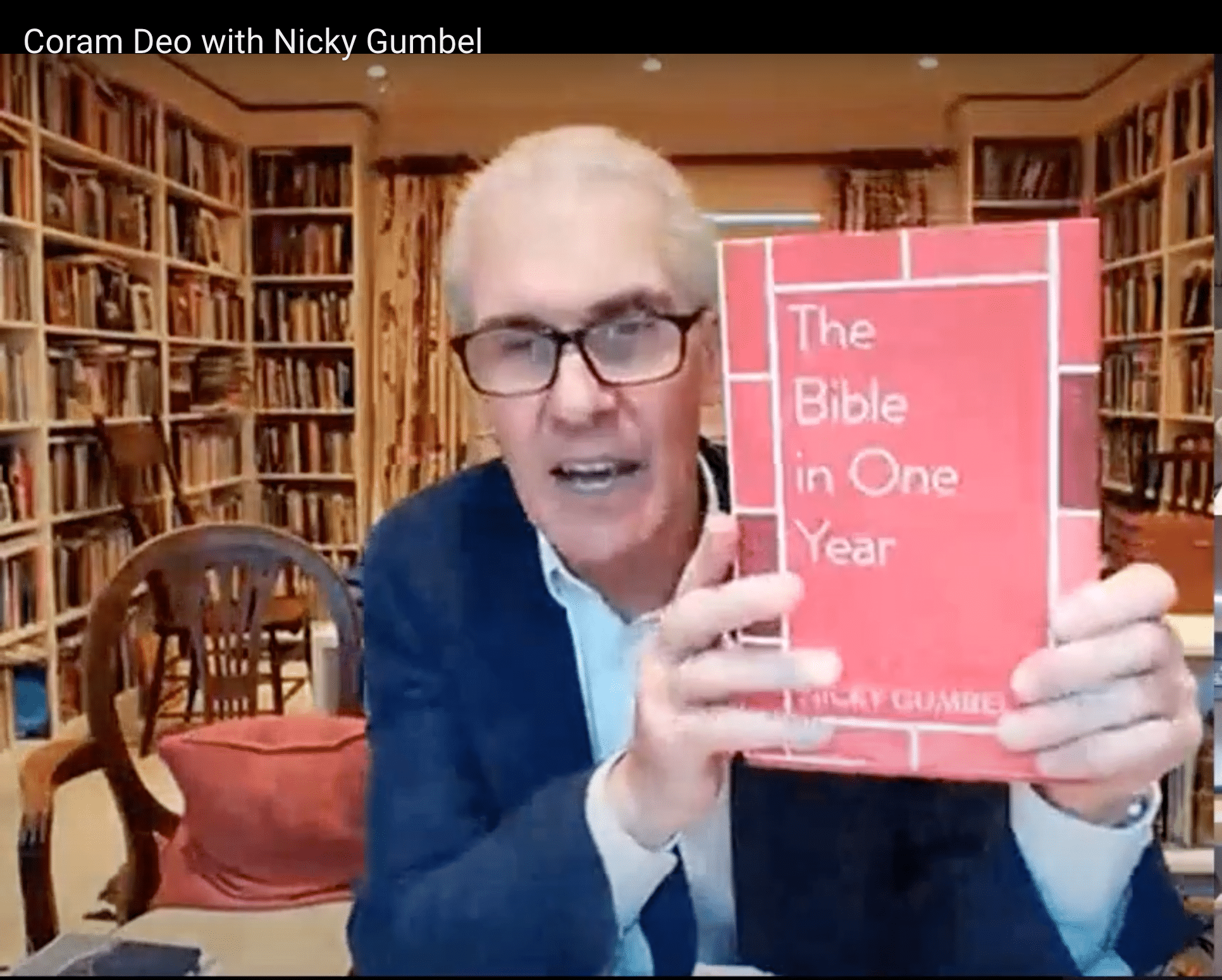
“Even if you’re not a Christian, you might have it on your bucket list, ‘I want to read the whole Bible before I die’,” said Nicky, pictured with a hardcopy of the Bible In One Year (also available in app form). In it, he and wife Pippa provide commentaries to take the reader through the Good Book in 365 days. Screenshot from the Coram Deo conversation.
It’s life changing, I’ve found, to read through the whole Bible each year, and to expect that God will speak to you each day.
As I read the Bible, I read verses like, “How will they hear without a preacher?” (Romans 10:14).
Faith comes by hearing through the Word of God. And how will they hear unless someone tells them?
But every day, it is more important to listen to Jesus, and that He speaks to us, than we speak to Him.
2. Pray. As you pray, the Holy Spirit will speak to you
I start off the morning by reading the Bible in One Year.
Then I go for a walk around the park and I pray. I ask, “Lord, what should I be doing?”
Towards the end, I often find ideas come to my mind. Ideas like “Why don’t you ask this person to do this?”. Entrepreneurial ideas. Leadership ideas.
And I believe that that’s the Holy Spirit.
3. Talk. God doesn’t just guide through individuals, but through the Church
Talk to your Christian friends. Ask, “What do you think I should be doing?”
I went to my closest friends, I went to Christian leaders and I asked for their wisdom as to what I should be doing.
4. Think. God guides us through our minds He has given us
God’s guidance isn’t a reason to reject common sense. So think things through.
“There’s no point in climbing a ladder if it’s leaning against the wrong wall.”
In terms of guidance, somebody said to me: “Look forward 10 years and way more ahead, and think: If you achieve all your ambitions, is that what you want to do?”
I did law for nearly 10 years and was loving my job. If I had achieved all my ambitions – which I don’t know if I would have done, but probably not – such as becoming a high court judge, I thought: I had no interest in that at all.
Then I thought: If I was to get ordained, have a small church, be a pastor to lead people to faith in Jesus, I would love to do that.
So there’s no point in climbing a ladder if it’s leaning against the wrong wall. Go in the direction where you want to end up.
5. Watch the circumstances and pray
One my prayers was, “Lord, please shut the doors that are wrong, and open the doors that are right.”
There’s a verse, Psalm 37:5: “Commit your way to the Lord, trust in Him and He will act.”
“If God closes the door, no one can open it. If God opens the door, no one can close it.”
In other words, watch what He does.
If God closes the door, no one can open it. If God opens the door, no one can close it.
So when I finished reading theology at Oxford, and I was ready to get ordained, I couldn’t find a parish to get to. We looked at nine parishes and we were turned down, or they just weren’t right. The door shut and I was left unemployed.
But then miraculously, a door opened for me to come into HTB, which is where I’ve been for the last 36 years. I wouldn’t be where I am if those nine doors had not shut. That was guided through the circumstances.
So if you look at those five things – read, pray, talk, think and watch (providence) – they are things that different parts of the Church have emphasised. But everyone believes in all five.
In major decisions you need all five.
What are some lessons you learned in leading Alpha?
We found that this Alpha course was very effective in leading people to faith, and adapted it for those outside the church. Other churches got interested. So we had a conference in May 1993 and a thousand church leaders came to that (to learn how to use Alpha as a tool for evangelism). And then it started to spread and it grew and grew. (We came to Singapore for the first time in 1994.) Now Alpha has hundreds of staff and offices in 50 or so countries.
“Leadership should never be an aim. Leadership is the cost of wanting to do something. My passion is to see people encounter Jesus.”
I don’t want to be a leader. Leadership should never be an aim. Leadership is the cost of wanting to do something. My passion is to see people encounter Jesus, being filled with the Holy Spirit, having their lives changed.
Leadership is a by-product. It’s a bit like fame – not something you should ever seek. If you want to get involved in politics because you want to change a nation, it may end up with you being famous, but that’s not the aim. Though today, some young people want to be famous for the sake of being famous.
Fame has a very high price. And leadership has a high price as well.
I’m an introvert. I don’t want to be in the limelight. I don’t want to put my head above the parapet.
If the Lord spares me, what I would love to do with the next 10 years of my life is to make Alpha available to everyone on the planet.
“Even the shyest person can influence 10,000 people in their life. So in one sense, we are all leaders.”
We are re-filming the film series. We are going to see what languages we can get it translated into.
And we’re working with the Bible translators, aiming to get the New Testament into every language on the planet by 2033. Rick Warren is doing Finish the Task. If we can all work together to see everyone on the planet get to hear about Jesus … that requires leadership.
Most people are leading in some way, because leadership is influence. And everybody influences lots of people; even the shyest person can influence 10,000 people in their life. So in one sense, we are all leaders.
In another sense, there is only one leader: Jesus.
Jesus is our leader. In one sense, no one is a leader, in another sense, everyone is a leader.
It has been said that we should not let this Covid crisis go to waste. What have you learnt from the crisis?
Covid-19 is a horrible disease. People have lost their lives, have been sick. People have not been able to say goodbye to their loved ones.
But God can take something horrible and use it for good.
“The digital revolution is the greatest opportunity for the Church in 500 years since Gutenberg invented the printing press.”
The supreme example of that is the cross. God took worst event in the history of the planet and He used it for the salvation of the world. So God can take Covid-19 and use it for good. And I think He is using it for good in many different ways.
If you look back in history, how did the Church explode in the first four centuries?
In the book, The Rise of Christianity: How the obscure marginal Jesus movement became the dominant religious force in the western world in a few centuries by sociologist Rodney Stark, Chapter Four is Epidemics, Networks and Conversion. It was during the pandemics that the Church really grew. In epidemics, the Christians ran towards the need. They were the ones who fed the hungry.
(HTB started the Love Your Neighbour initiative as an emergency response to Covid, which has since mushroomed into much more and spread to other churches.)
The digital revolution is the greatest opportunity for the Church in 500 years since Gutenberg invented the printing press.
Within 100 years, Martin Luther was printing off 5,000 New Testaments every two weeks. So that enabled the Bible to get into the hands of every person in their own language.
Now, the digital revolution, which is accelerated through pandemic, has meant that most people on the planet will have one of these [Nicky holds up a mobile phone] by 2033. And on this, you can get the Gospel. If the Church gets its act together, we will be able to reach everyone on the planet.
“Nine out of 10 said they wouldn’t have come had it not been online. So this is an amazing opportunity.”
And that’s another benefit and certainly for us with Alpha Online. We were amazed at how enjoyable it is, how it works, how we can have a relationship like this. I don’t have to fly to Singapore, you don’t have to fly to London – we can have this conversation. We could have done it before, but I don’t think it would have happened.
I remember the first Alpha we did online: Nine out of 10 said they wouldn’t have come had it not been online. So this is an amazing opportunity.
We don’t want to do everything online because it’s not really a substitute for human relationships. And we need both. People suffer from a mental health crisis as a result of being isolated for so long.
But nevertheless, we’re now in a hybrid situation.
Our services on Sunday are back and we have between 10,000 and 20,000 people watching every week online. So again, we’re able to reach a whole lot of other people who wouldn’t otherwise come.
To find a community that runs Alpha near you, click here.
Check back soon for Part 2 of this report, in which Nicky Gumbel talks about criticism, fame and living out (vs talking about) the faith as a leader in the workplace and at home.
RELATED STORIES:
Far East Organization’s Philip Ng on learning to be a servant CEO
“God is the Master Builder”: Datuk Edward Ong, founder of the Sutera Harbour Resort
We are an independent, non-profit organisation that relies on the generosity of our readers, such as yourself, to continue serving the kingdom. Every dollar donated goes directly back into our editorial coverage.
Would you consider partnering with us in our kingdom work by supporting us financially, either as a one-off donation, or a recurring pledge?
Support Salt&Light